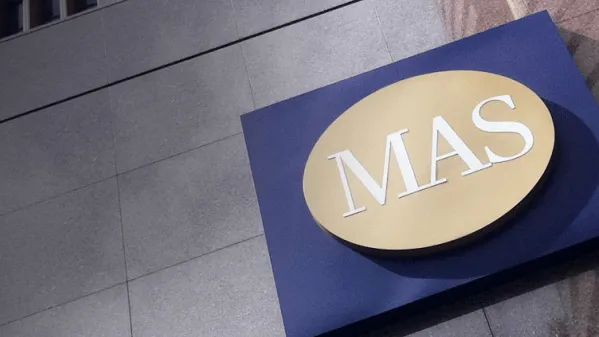
High time for MAS to amplify investigative powers: law firms
The proposed amendment will strengthen MAS’ power in multiple acts.
The Monetary Authority of Singapore (MAS) recently announced its proposal to further enhance its investigative powers under the Financial Institutions (Miscellaneous Amendments) Bill.
The bill aims to expand the supervisory and enforcement powers of the MAS under the following various acts such as the Banking Act (BA), Credit Bureau Act, Financial Advisors Act (FAA), Insurance Act (IA), Payment Services Act (PSA), Securities and Futures Act (SFA), Trust Companies Act (TCA), and a new omnibus Act for the financial sector (the New Act).
But what does this exactly mean for MAS?
The new powers
One of the highlights of the amendment that MAS is proposing is the power for any MAS investigator or authorised officer to enter any premises without any warrant if there are reasonable grounds to suspect that the premises are, or have been, used by a person being investigated by MAS.
Additionally, any person inside the premises is required to produce evidence that may be considered relevant to the investigation or direct MAS officers to where said evidence may be found.
With this power, MAS will also remove the requirement of giving two days notice to the occupier of the premises, thus eliminating the possibility of concealment or destruction of incriminating evidence.
MAS also wants to be able to obtain information, including electronic form, from any person for the purpose of investigations. Currently, MAS can only obtain information from financial institutions (FIs) themselves. However, with the proposed amendment, MAS can go directly to the employees of FIs. The proposal also extends this reach, allowing MAS to obtain information from former employees.
The proposed amendment will also strengthen MAS’ power of examination. It makes it explicit that the regulatory commission will be able to compel any individual for examination and to record statements. MAS may also report to the Magistrate those individuals who fail to attend such interviews. These individuals may then be issued a warrant to attend the examination which would result in contempt of court if the individual still refuses to show for such interviews.
Obtaining evidence
The new provisions will also give MAS the power to obtain a warrant to seize evidence, as well as electronic evidence when: a person has failed to comply with an order to produce evidence, or if there is a risk that the evidence will be concealed, removed, tampered with, or destroyed if an order to produce the same is made.
Additionally, the scope of the warrant under the TCA will also be aligned with the scope of the warrants under the other relevant Acts. Powers under the SFA7 will be expanded to enable the transfer of evidence collected by MAS in cases involving any offence under the SFA to the police or the public prosecutor. An equivalent provision will also be introduced in the other relevant Acts.
Whilst the power for the MAS to obtain a warrant already exists under the SFA, FAA, and TCA, it will be clarified that the warrant includes electronic evidence, and the scope of the TCA power, which is currently narrower than that of the SFA and FAA, will be expanded to be consistent.
When handling evidence, MAS also proposed that when there is evidence that reveals the commission of any offences under Parts VII and XII of the SFA and it is obtained by the police under the Criminal Procedure Code, this evidence can be transferred to MAS for investigative purposes and for commencing civil actions.
This means that the enforcement actions for offences under the SFA will become more efficient through sharing of access to evidence and will remove the need for duplicate investigations by multiple agencies. The transfer of evidence between these agencies will allow for more dynamic and efficient enforcement, along with achieving the most appropriate enforcement action for the case at hand.
Timely change
According to a report by the local law firm, Dentons Rodyk, these measures are timely given the growth in size and complexity of operations in financial institutions and finance-related entities. Additionally, it also empowers the regulator to react quickly to any report of commercial crime or money laundering that may occur and also gain access to ex-employees who may have knowledge of the same.
The law firm stressed that for companies, it would be worth noting that past employees can also be called up for questioning.
“It is envisaged that these proposals, when enacted, would give added credence to Singapore’s reputation as an important finance hub in the global ecosystem and bolster increased confidence amongst investors whilst providing clarity on the investigative powers of the regulator,” Dentons Rodyk said.
Baker McKenzie, an international law firm, said these changes are an important expansion of MAS’ powers.
“The proposed changes represent an important expansion and standardisation of the MAS' powers across the relevant Acts, and MAS' expanded reach toward ex-employees of financial institutions or entities outside the scope of MAS' supervision. Separately, capital markets services licence holders may potentially be subject to regulations with respect to any unregulated activities carried out by the licence holders,” Baker McKenzie said.



![SBR 5 Lorem Ipsum News 2 [8 May]](https://cmg-qa.s3.ap-southeast-1.amazonaws.com/s3fs-public/styles/exclusive_featured_article/public/2025-05/a_hand_pointing_to_a_futuristic_technology_5b87c9d0e3_3.png.webp?itok=M3Hf-9XR)
![SBR 4 Lorem Ipsum [8 May Top Stories]](https://cmg-qa.s3.ap-southeast-1.amazonaws.com/s3fs-public/styles/exclusive_featured_article/public/2025-05/a_hand_pointing_to_a_futuristic_technology_5b87c9d0e3_2.png.webp?itok=2m5Wl0MX)


![Exclusive three SBR 12 Lorem Ipsum [8 May]](https://cmg-qa.s3.ap-southeast-1.amazonaws.com/s3fs-public/styles/exclusive_featured_article/public/2025-05/a_hand_pointing_to_a_futuristic_technology_5b87c9d0e3_11.png.webp?itok=8kn_UIfA)
![SBR 3 Lorem Ipsum [ Exclusive 2]](https://cmg-qa.s3.ap-southeast-1.amazonaws.com/s3fs-public/styles/exclusive_featured_article/public/2025-05/a_hand_pointing_to_a_futuristic_technology_5b87c9d0e3_1.png.webp?itok=YCyjLegJ)
![SBR 2 Lorem Ipsum [8 May]](https://cmg-qa.s3.ap-southeast-1.amazonaws.com/s3fs-public/styles/exclusive_featured_article/public/2025-05/a_hand_pointing_to_a_futuristic_technology_5b87c9d0e3_0.png.webp?itok=_cKD-29o)

![Video [Event News]](https://cmg-qa.s3.ap-southeast-1.amazonaws.com/s3fs-public/styles/event_news_featured_article/public/2025-05/screenshot-2025-05-08-at-4.58.53-pm_0.png.webp?itok=Kud35sMs)
![Event News SBR 9 Lorem Ipsum [8 may]](https://cmg-qa.s3.ap-southeast-1.amazonaws.com/s3fs-public/styles/event_news_thumbnail/public/2025-05/a_hand_pointing_to_a_futuristic_technology_5b87c9d0e3_8.png.webp?itok=DTh_dbYp)
![Event News SBR 9 Lorem Ipsum [8 May]](https://cmg-qa.s3.ap-southeast-1.amazonaws.com/s3fs-public/styles/event_news_thumbnail/public/2025-05/a_hand_pointing_to_a_futuristic_technology_5b87c9d0e3_7.png.webp?itok=vzDAzb6V)
![Event News SBR 8 Lorem Ipsum [8 May]](https://cmg-qa.s3.ap-southeast-1.amazonaws.com/s3fs-public/styles/event_news_thumbnail/public/2025-05/a_hand_pointing_to_a_futuristic_technology_5b87c9d0e3_6.png.webp?itok=jvHFc4P6)
![Video [Event News]](https://cmg-qa.s3.ap-southeast-1.amazonaws.com/s3fs-public/styles/video_thumbnail/public/2025-05/screenshot-2025-05-08-at-4.58.53-pm_0.png.webp?itok=yZnI0YBb)
![Video 1 SBR [8 May]](https://cmg-qa.s3.ap-southeast-1.amazonaws.com/s3fs-public/styles/video_thumbnail/public/2025-05/screenshot-2025-05-08-at-4.58.53-pm.png.webp?itok=9AAeRz_k)

 Advertise
Advertise

